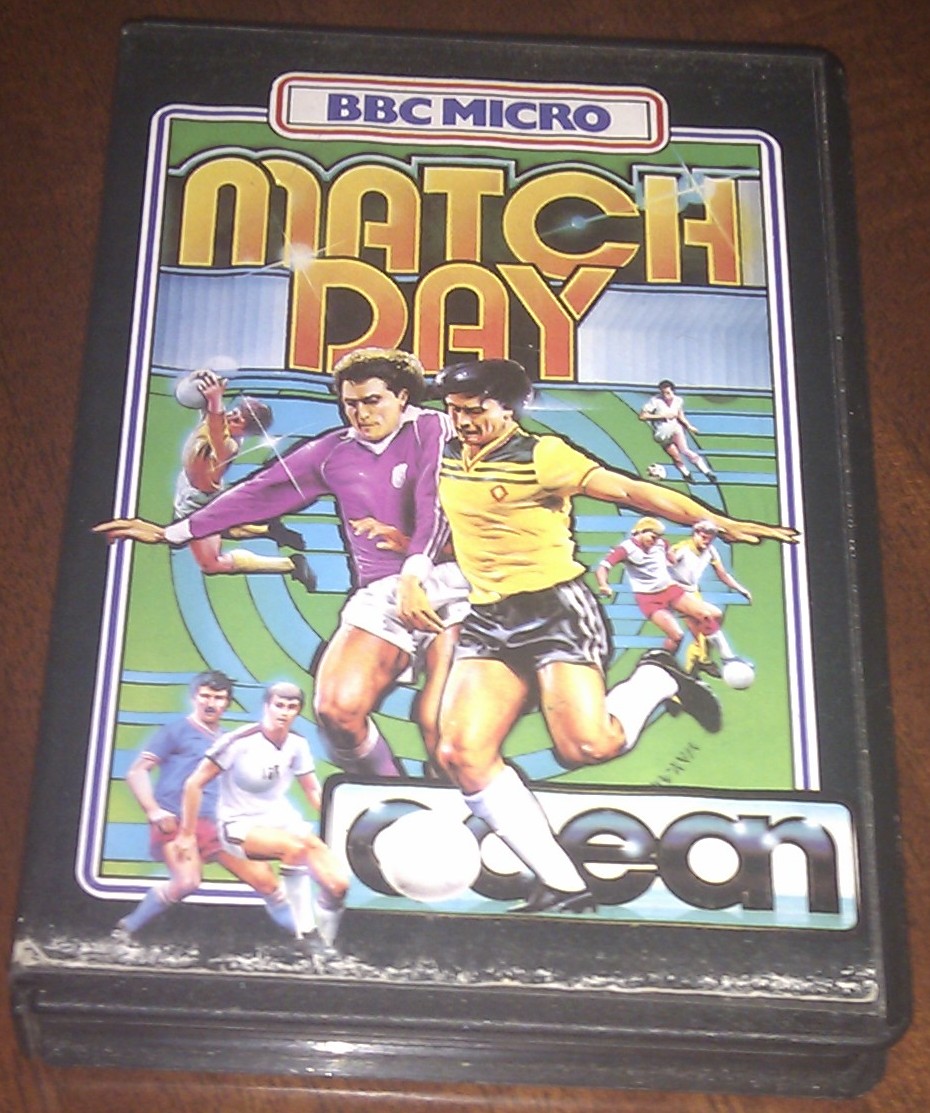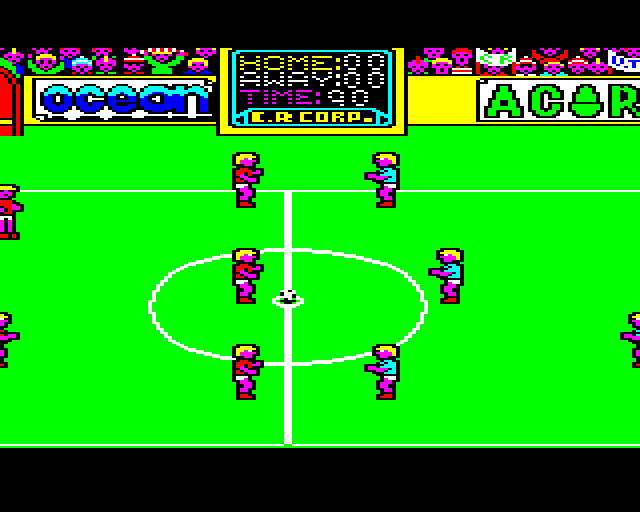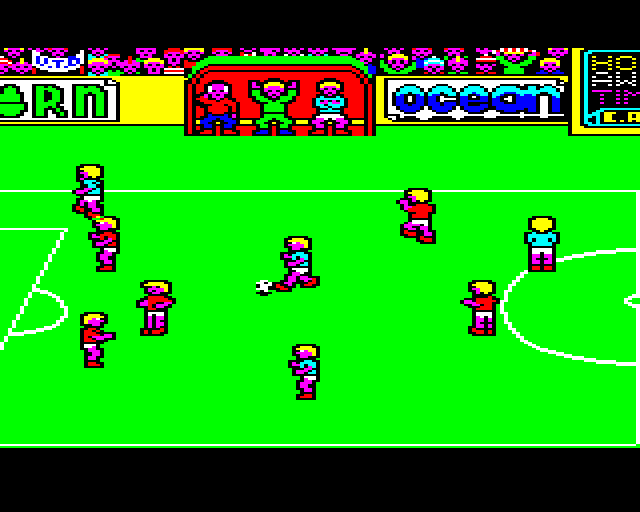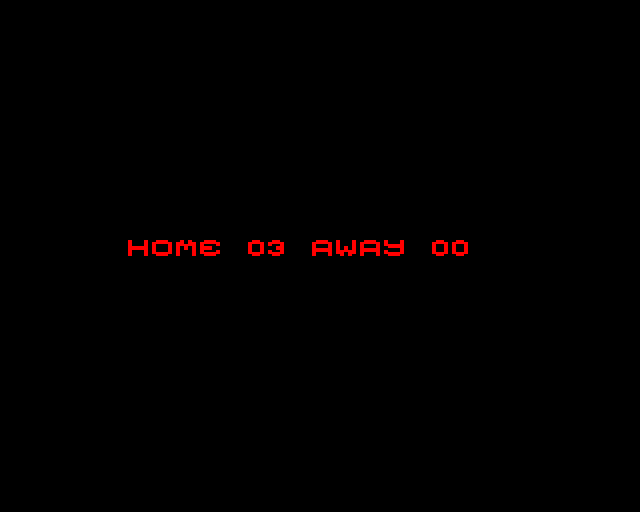
This was Chris Roberts’ second game for Ocean (who owned Imagine) on the BBC. Match Day was a massive game in its day leading to Ocean wanting to get it onto as many platforms as possible. Having just brought them a bestselling game for the BBC, Roberts must have seemed like the obvious choice for the job of porting it to the system. I know Martin Galway worked on the C-64 port so he may have been an influence also. But if you don’t happen to own a console that can run such games, you can instead check out platforms like Crypto Casino where you can still play fun games with the use of your phone.

Match Day is a simple arcade football game. I’ve played it previously on the Spectrum and also seen the Amstrad CPC version so I’ve got something to compare against this time. The first thing I notice is that the BBC port has no cup competition to enter, no settings to alter the match length and not even any team names. It is literally just a one off game. It does have a two player option at least.

The game starts with a jaunty rendition of the Match Of The Day theme music before kick off. This is a truly simplified version of football with less than 11 men a side and only one fire button used to kick the ball. This kick lofts the ball into the air no matter what so it isn’t possible to pass the ball in the conventional sense. If the ball bumps into another player anywhere other than at their feet it bounce soff them as though they were a brick wall.
In the Spectrum version, it was possible to walk down the pitch bouncing the ball on one players head in this manner and no one could tackle you while you walked the ball into the net. That doesn’t seem to be possible here at least.
Once you have the ball at your feet, it sticks there as if glued although it can be tricky to keep hold of it with the constant harassing from the other side. Scoring a goal appears to be just a case of kicking the ball between the posts with enough power to cross the line. The goalkeepers in this game are no more than a third goalpost and rarely move other than to dive out of the way of a shot aimed straight at them. Because the ball is always lofted when kicking, long shots work better than those close to the goal.

This isn’t a game that has held up too well. The main thing that strikes me is how slow it is. I ended up putting the emulator onto 2x speed to get it up to the tempo it feels like it should be going at. This speed issue was far from unique to the BBC though. The Spectrum version was possibly a little faster but it was extremely ugly by comparison. As for the Amstrad CPC version, it had similar graphics but the speed was far worse than this and all but unplayable.
Comparing it to those other versions, this is a decent port but there is no way I could recommend this game to anyone. It’s one of those titles that you look back at and wonder why on earth we all spent so much time on it.
